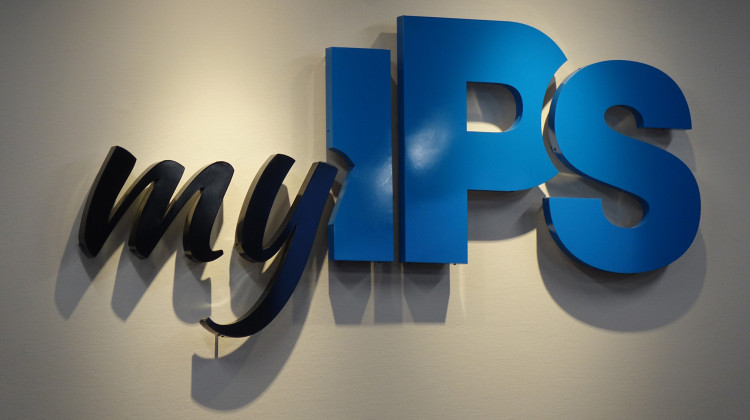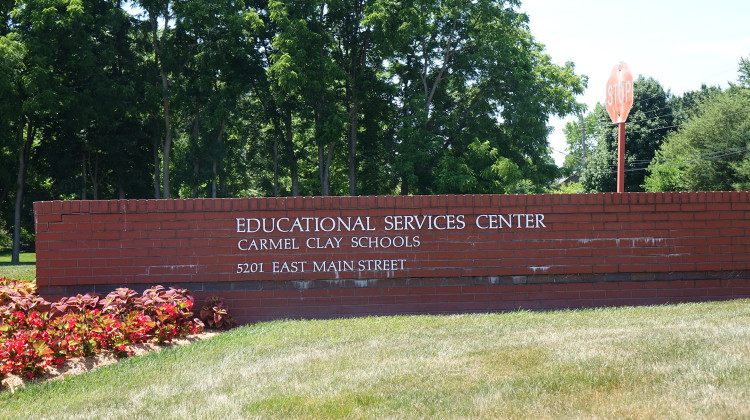This report is part of an ongoing series focused on remote learning and special education during COVID-19 pandemic.
Special education students are disproportionately challenged by school building closures during the coronavirus pandemic. Their needs include speech therapy, behavior therapy and assistance with learning disabilities, and they rely on one-on-one time with educators. More than 170,000 Indiana students, or 15 percent, receive some type of special education accommodation.
Kim Dodson, executive director of The ARC of Indiana, says families' anxiety right now is very high. Parents and caregivers fear their children will fall behind in academics or ability while learning remotely. She says families should “take a deep breath” and focus on the health and safety of their child.
“So if you look into your child's eyes and you know that they are being fed, that they are healthy, they're not outside catching the virus or anything like that. That's a good place to start. Is it good that they are not making educational progress right now? Or that they might regress? No, it's not. But at the end of the day, those are things that we are going to be able to make strides towards in the future,” Dodson says.
Dodson and other advocates say educators and districts are working hard to pivot in difficult circumstances. They also say, moving forward, families should advocate for and expect that students will get the help and support they need.
Here are five things to know:
One: Federal Laws Are Unchanged
U.S. Education Secretary Betsy DeVos previously said she may ask Congress to suspend parts of the Individuals with Disabilities Education Act in response to the coronavirus. DeVos now says she will not do that. But there could still be other changes that impact families.
Margaret A. Jones, executive director of Disability Legal Services of Indiana, says DeVos could ask Congress to waive the timelines for evaluating students who are turning three and aging out of First Steps, Indiana's early intervention program. That evaluation determines if they are eligible for special education through their local public school.
Two: IEPs Are To Be Followed
State and federal laws still require schools to follow individualized education plans (IEP) and all 504 Plans. The IEP is a document agreed upon by the teacher of record and parent that explains what specialized instruction and services a student gets. A 504 plan details what accommodations a student needs to be academically successful.
Some examples from those plans could include: a student needs directions read to them aloud; a student needs more time when taking a test; and a student needs speech therapy twice a week.
A student’s school must do all it can to follow these plans, Jones says. As an example, following the IEP could mean more phone calls or video conferences with a student’s teacher.
“We just need to figure out how those are going to be implemented during this time. The services might look a little different: Instructional telephone calls or curriculum-based instructional activities. It will look different. Parents should reach out if they haven't heard from their classroom teacher or their teacher of record,” Jones says. “You need to reach out to the school and say, ‘Hey, what's going on with this? And how, how is my child going to be getting these extra services?’"
Dodson says there are some Indiana schools that are not providing all services students need, but it does not appear intentional.
“It's because of lack of technology, lack of broadband, that type of stuff,” Dodson says about a technology gap school districts across the state face. “So certainly it's not being followed to the extent that it should.”
Three: Keep Your Annual Case Conference Committee On Schedule
The annual meeting about your child -- called a case conference committee -- should still happen. The case conference committee is a time for a student’s teacher of record, parent and others involved in the student's services to set new goals in the IEP -- evaluate what is working, and what is not.
Every student who receives special education services must have at least one case conference meeting during a 12 month period. The Indiana Department of Education explains how to do this remotely, on a video or phone conference.
Mimi Huybers, an attorney with Disability Legal Services of Indiana, says this could also be the time to consider adding contingent plans in an IEP to reflect what is happening now, such as how to provide services in an alternate location or for online or virtual instruction.
“The Department of Education is really requiring the schools to still try, as best as possible, to meet those timelines and those requirements,” Huybers says, adding that so much is in flux right now. “But we can try our best to help serve the kids who need these extra special education services and not just throw away everything that we've been working on.”
Four: Know Your School's Continuous Learning Plan
Parents and caregivers should know their school district’s continuous learning plan. This is the document Gov. Eric Holcomb requires all schools to submit to the state education department. It explains how learning is happening -- like if students will use paper packets or Google Classroom. It should also address special education.
If physical therapy for your child is needed -- make sure you have a packet or video or phone call to explain how it’s done.
Jones says if a caregiver does not have the right resources at home -- like a laptop computer -- tell the school. The Indiana Department of Education posted information about student’s assistive technology needs and e-learning guidance.
“‘Can you provide that technology? Can you provide something or we have limited internet access?’” Jones suggested asking. “Schools are encouraged to be providing those things.”
Advocates also say a student’s teacher of record, or general education teacher should know what is working and what isn’t during remote learning. Stay in touch.
Five: Resources Are Available From The State
Monitoring your student’s goals is not going to be easy. And it might not be possible to truly assess a student’s growth. We’re facing a global pandemic. Families are stressed out. Home life is different, and it can be tense. Again, keep in contact with your teacher of record and let them know how it is going.
Everyone agrees -- this is not easy.
Jennifer McCormick, Indiana’s school superintendent and a former special education teacher, recently said: “I'm not going to try to sugarcoat -- it's very tricky.”
Advocates say McCormick and her department are on top of the many issues special education families face. The Indiana Department of Education has a website of documents and recommendations to help special ed families navigate learning and accommodations during the pandemic. Some of it is updated daily.
Contact WFYI education reporter Eric Weddle at eweddle@wfyi.org or call (317) 614-0470. Follow on Twitter: @ericweddle.
 DONATE
DONATE









 Support WFYI. We can't do it without you.
Support WFYI. We can't do it without you.